Solar worker

As technology has become omnipresent in our lives, we finally acknowledge these conveniences’ full impact on our environment. Modern advantages ranging from anything being delivered overnight to the ability to work remotely from anywhere in the world come at a cost, namely energy, most of which still originates from fossil fuels. And while alternatives like solar are available, we are only just beginning to take advantage of them. In fact, solar cells were first invented by Bell Labs in 1954, but 60 years later, we are still far away from deploying solar energy on a scale large enough to release us from our dependence on fossil fuels. While reducing the use of traditional energy sources will take significant investments by both the government and industry, consumers can also do their part. However, many consumers still have questions about affordability, including whether to buy or lease. HBCU Clean Energy Initiative provides some answers to help residential homeowners make the right choice.
But first, let’s talk about why solar energy is one of our best alternative energy options. In the United States, about 65% of total electricity generation in 2018 was produced from fossil fuels. The released substances include mercury, carbon dioxide, carbon monoxide, and other gasses detrimental to human and environmental health and are a significant cause of global warming. Also, many power plants that distribute electricity produce liquid and solid waste such as ash. Ash mixed with water becomes sludge, and stored in holding ponds can be extremely dangerous if it leaks into groundwater.
On the other hand, solar energy is the cheapest, cleanest, most abundant, and available energy source on the planet. Over 174,000 terawatts of energy are consistently generated from the sun, even on the cloudiest of days. Secondly, solar power plants can last more than 40 years. Even more impressive is that one hour of sunlight equals one year’s worth of energy for the entire Earth and could reduce CO2 emissions by 100 tons in thirty years. Overall, solar energy is simply the most efficient and environmentally friendly option available right now. So, why aren’t more people using solar? Despite it being the cheapest energy source overall, residential solar panels can be expensive. Although the cost of panels has decreased by twenty percent over the past five years, it still means an expenditure of roughly $15,000 to $30,000 depending on wattage and state of residence, which brings back the question of whether it’s better to buy or lease.
Leasing Solar Panels
There are multiple reasons why someone may consider solar leasing. Similar to leasing a car, leasing panels is a financing option. Consumers don’t own the panels, but they pay monthly fees for their use in exchange for the power generated. Leasing decreases utility bills generating at least 10% savings on monthly average energy costs for most homeowners. Leasing also eliminates installation costs, maintenance, and any liability for damaged panels. And it can be an excellent option for those who frequently move, as ending a contract can be relatively simple.
However, leasing can have a downside. Brett Simon, a senior energy storage analyst at Wood Mackenzie, states that “It usually ends up being more expensive over the life of the project (to lease).” Solar leasing isn’t guaranteed to save money in the long term, and entering into a lease agreement can complicate home sales. You also miss out on incentives when you don’t own the panels, like local and federal tax credits. Leasing made more sense when solar panels were costly, but leasing may not be your best option as prices have decreased.
Buying Solar Panels
Buying solar means, the homeowner owns the panels, qualifies for tax credits, and can use it as an advantage when selling their home. Despite buying being more expensive in the short term, the long-term savings will be substantially more significant. Incentives include federal investment tax credits and solar energy tax credits. A federal investment tax credit allows individuals or businesses to deduct a certain percentage of investment costs from their taxes (which will save 26% of the total cost of the solar panel installation costs). The main downsides to purchasing include the responsibility of maintenance and associated fees and the upfront costs. However, some companies will even work with the homeowner to defer upfront costs by putting them into the monthly financing payments.
In conclusion, buying seems to be the best long-term option for homeowners who can afford it. And it enables them to help make a positive environmental impact. As we all know, our planet needs as much help as we can give it right now, and it’s up to everyone to do their part in whatever way they can. The HBCU Clean Energy Coalition (CEI) is also doing its’ part by working with the residents of lower-income communities surrounding HBCU and MSI campuses and helping them install solar on their homes. It is one way that CEI can help residents take advantage of cheaper and cleaner energy, but HBCU students also participate, giving them green energy career experience.
To find out more about the HBCU Clean Energy Initiative, click here.
To read more CEI blogs, click here.

